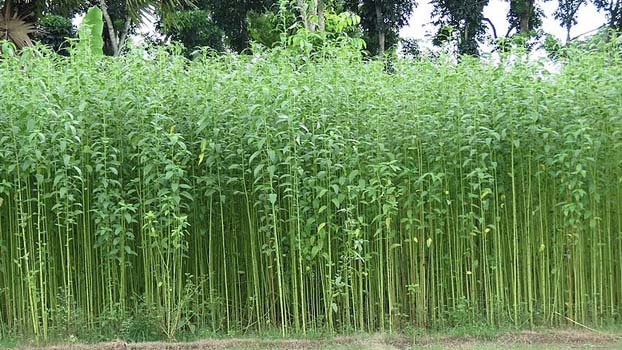Farmers being encouraged to produce improved varieties of jute seeds

The Jute Department is encouraging the farmers of Chatmohar in Pabna to produce improved varieties of jute seeds to reduce import dependence. As part of this, with the help of the Upazila Agriculture Office, the local Deputy Assistant Jute Development Officer is motivating the local farmers to produce jute seeds.
The government is working to increase jute production and expand jute products. As part of this, the officials distributed seeds and fertilizers among the farmers. The scope of jute cultivation is gradually increasing in this area due to incentives and good prices of jute in recent years.
The Jute Department has provided training to the jute growers in Chatmohar. The jute farmers of Chatmohar are getting the benefits of organizing workshops for modern and advanced technology based jute cultivation, jute seed production and expansion, excluding traditional jute cultivation. Many are also becoming interested in jute seed production, informed sources.
According to the Chatmohar Agriculture Office, jute has been cultivated on 8,720 hectares of land in 11 unions and one municipal area of Chatmohar this season. Of these, Deshi jute variety has been cultivated on 135 hectares, Tosha variety on 8,445 hectares and Mesta variety on 140 hectares of land.
Last year, different varieties of jute were cultivated on 8,100 hectares of land in Chatmohar. 620 hectares of land mkre has been brought under jute ultivation in the upazila this year as compared to last year.
Deputy Assistant Jute Development Officer Bachchu Mia working at Chatmohar said, “We are working to produce Robi-1 and O-9897 varieties of jute seeds in Chatmohar. Necessary seeds, fertilizers, pesticides will be provided to the seed producing farmers. They will be given all the advice from sowing to collecting seeds. The seeds produced will meet the demand of the farmer for jute seeds in the next season. Additional seeds will be purchased at the rate of Tk 200 per kg by the Jute Department, Chatmohar”.
If the seeds are sown in August-September, there is a possibility of getting 80 to 100 kg of seeds per bigha, which costs about Tk 16 to 20 thousand. The cost per bigha will be Tk 2 to 3 thousand. Jute trees can be used as fuel after seed collection.
Apart from the listed jute seed growers, other interested farmers will also be able to produce seeds under this scheme. One spray machine will be provided for every 3 bighas of land. Seeds can be sown from August to mid-October.
Necessary seeds and fertilizers will be distributed to the interested farmers soon. The official also requested the farmers interested in jute seed production to contact him.



